“Pasture is the main resource of our sheep,” says Antonio Morbidi, current president and third generation of the Morbidi family to operate SALCIS. “To continue having the highest quality of milk, it’s necessary to keep the earth as it has been left from our fathers.”
Located in Siena in the Tuscany region of Italy, SALCIS makes several fine Pecorino cheeses with sheep milk sourced from local shepherds in the surrounding areas of Chianti, the Sienese Crete and the Orcia Valley, as well as milk from their own flock which accounts for about 30% of the supply used to make their cheeses.
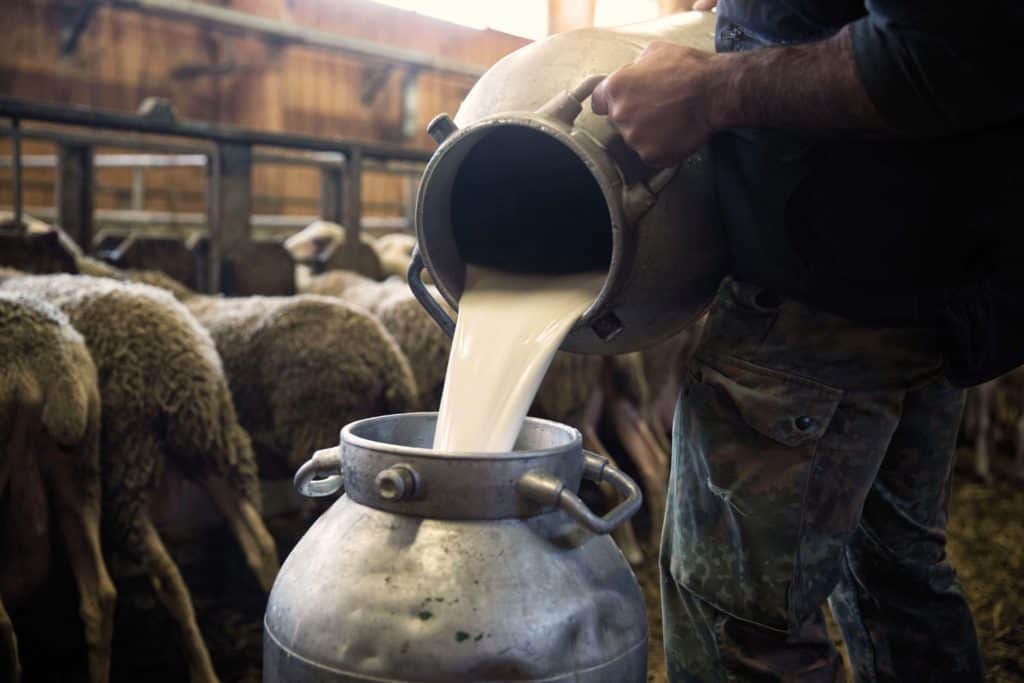 The respect for the earth and traditions of his forefathers sparked Antonio and his family to breed his own sheep herd. Although the Morbidi family has a long-standing and honored relationship with the shepherds of Siena, having their own flock allowed SALCIS to have quality milk at all times, like when other flocks were lambing. In 2015, in beautiful Fogliano two kilometers from Siena–for the well-being of sheep and land–the Morbidi family built an environmentally “green” sheepfold (or barn) made of hay bale walls, natural wood and a grass roof.
The respect for the earth and traditions of his forefathers sparked Antonio and his family to breed his own sheep herd. Although the Morbidi family has a long-standing and honored relationship with the shepherds of Siena, having their own flock allowed SALCIS to have quality milk at all times, like when other flocks were lambing. In 2015, in beautiful Fogliano two kilometers from Siena–for the well-being of sheep and land–the Morbidi family built an environmentally “green” sheepfold (or barn) made of hay bale walls, natural wood and a grass roof.
“Our choice to become breeders as well is born here, because we know that the milk is the basis of everything,” says Antonio. “Thanks to our pastures, we can guarantee and check the process from raw materials to finished product.”
SALCIS has deep roots in Siena. Although they began making Pecorino cheese in the 1960s, SALCIS was first founded as a cooperative of butchers in 1941 during World War II as a way to unify all of the Tuscan Salami producers in the area of Siena who faced restrictions (the acronym SALCIS stands for “Società Anonima Lavorazione Carni Insaccati Siena” which translates roughly to “anonymous company for processing meat sausage of Siena”).
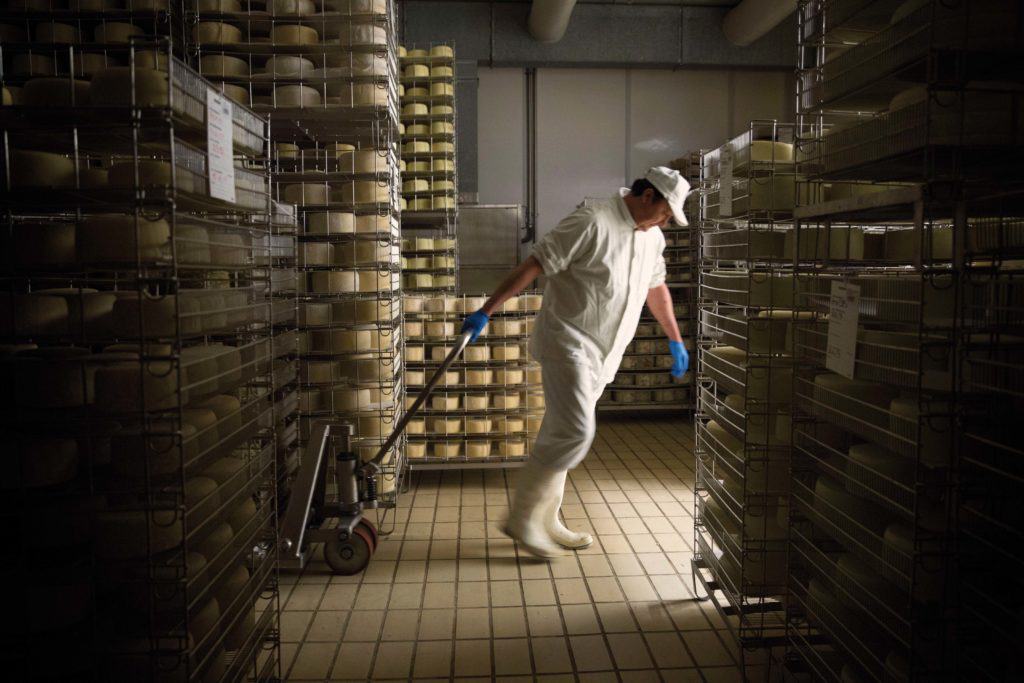 Antonio’s grandfather, Armano Morbidi, was one of the original founders of SALCIS and a number of Morbidi shops remain open to this day in the city center of Siena. By the 1980s, the Morbidi family was the sole owner of the brand and the company’s original philosophy regarding meat production also now lives on with their cheeses: to honor Italian dairy tradition and use the best raw materials and technology to procure products of the highest quality.
Antonio’s grandfather, Armano Morbidi, was one of the original founders of SALCIS and a number of Morbidi shops remain open to this day in the city center of Siena. By the 1980s, the Morbidi family was the sole owner of the brand and the company’s original philosophy regarding meat production also now lives on with their cheeses: to honor Italian dairy tradition and use the best raw materials and technology to procure products of the highest quality.
Many years since the establishment of SALCIS, Antonio has followed his grandfather’s and father’s footsteps. Before Antonio became the president, he was the cheesemaker at SALCIS for a decade. When he graduated in Economy and Management, Alessandro began teaching Antonio how to run the company. A vital part of running the company was and is honoring the kinship between the Morbidi family and the local shepherds.
In the 1960s, as shepherds arrived from Sardinia, Armando and Antonio helped them become established in Siena. “This helped to consolidate a relationship of friendship and esteem,” says Antonio. And this connection remains deeply rooted. “I have the best relationship with Sergio Zucca, who is not only one of our shepherds but a friend of mine and my family. He has Sardinian origin, and he is the son of one of our most ancient shepherds.” Antonio describes him fondly. “He isn’t very tall and has grey hair [and] tanned skin. He is really a good hard worker with a big heart.”
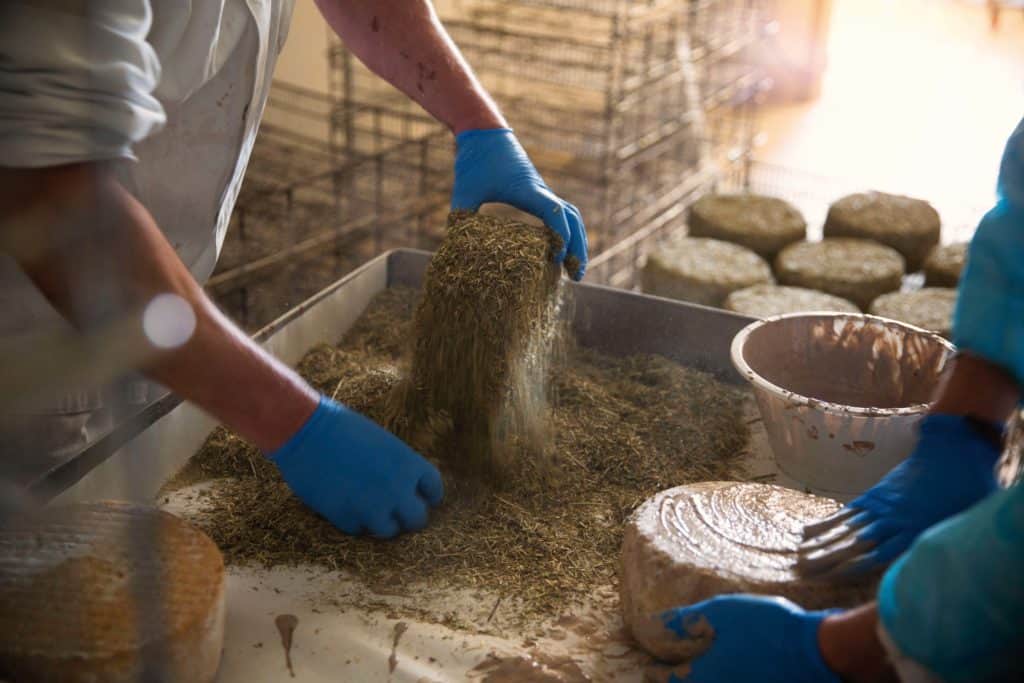 The land is at the center of these human relationships; it is what brought people together, and long-standing respect for the land is evident, as well as for the traditions of the land and the people who live and raise animals there. “The countryside has remained untouched and has a great variety of landscapes,” Antonio says. “Siena is unique because it has maintained the mediaeval characteristics [of the] period in which it was in its highest glory.”
The land is at the center of these human relationships; it is what brought people together, and long-standing respect for the land is evident, as well as for the traditions of the land and the people who live and raise animals there. “The countryside has remained untouched and has a great variety of landscapes,” Antonio says. “Siena is unique because it has maintained the mediaeval characteristics [of the] period in which it was in its highest glory.”
In fact, in 2000, SALCIS combined their pork butchery and dairy premise into a single new facility at the foot of the breathtaking historical Monteriggioni Castle in Siena, a magnificent landmark referenced in Dante’s Inferno: “On its circular parapets/Montereggione crowns itself with towers.”
Antonio’s love and respect for the land permeates all that he does. He says his favorite time of day is early morning. “The Sunrise is the moment of the day that I prefer, I love its colours and silence.” His care for the land knows no boundaries. Antonio and his team extend stewardship of the environment beyond their own pastures by caring for the land of neighbors, too.
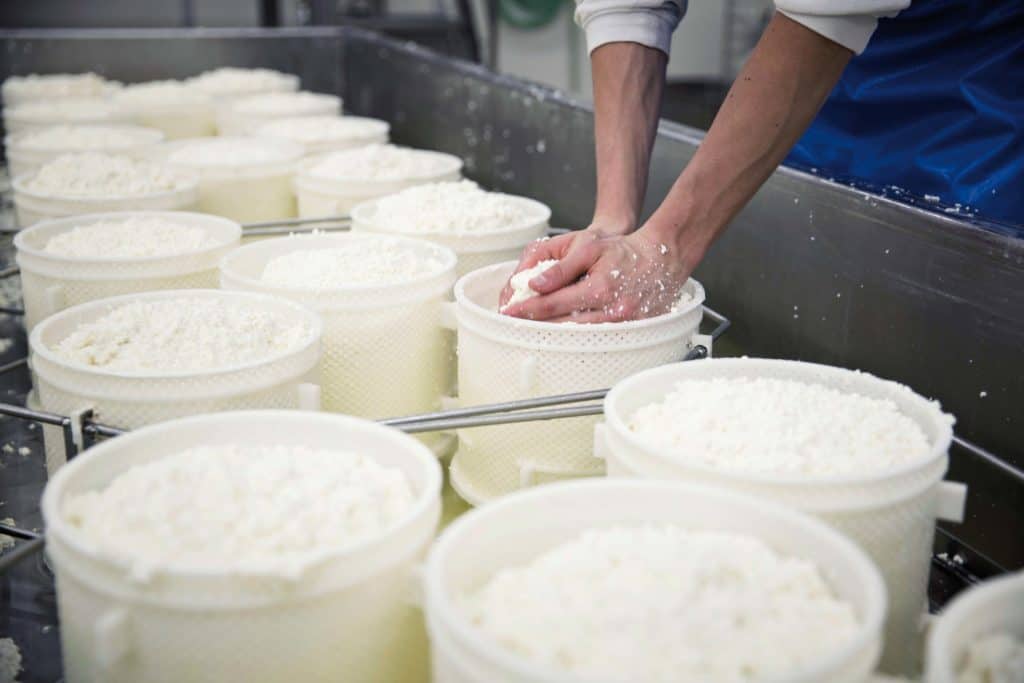 He reflects on the origins of SALCIS and how when World War II ended, some members of the Society chose to distribute their products outside of Siena into national territory. “This activity [continued] with my father and now with me and my sisters,” Antonio says. “For some years [now] my grandchildren–who represent the fourth generation–have also begun to collaborate with the company.”
He reflects on the origins of SALCIS and how when World War II ended, some members of the Society chose to distribute their products outside of Siena into national territory. “This activity [continued] with my father and now with me and my sisters,” Antonio says. “For some years [now] my grandchildren–who represent the fourth generation–have also begun to collaborate with the company.”
Although running SALCIS is a family affair there is space for individual interests and strengths. “In my family since I was young, we’ve divided the tasks according to our aptitudes,” says Antonio. “It was a great teaching from our father that allowed us from an early age to work independently and in harmony with each other.” That collaboration and harmony come through in their variety of raw milk, semi-aged and aged cheeses.
One such cheese is MonnaLisa Pecorino Trebbione made with raw milk limited to production times when sheep are able to supply milk with the appropriate characteristics resulting in a robust flavored cheese with a hay-colored rind that is covered in hay as it matures.
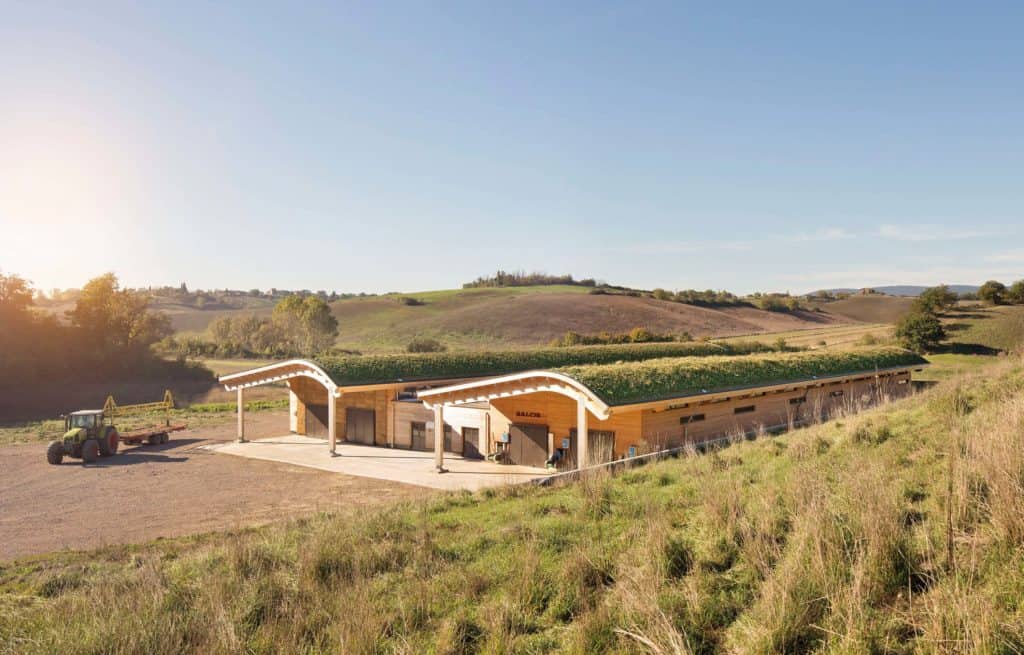 Then there’s MonnaLisa Pecorino Foglie di Noce which is ripened in walnut leaves, an aging method that is a long-standing tradition to preserve Pecorino during the warm months. The leaves’ protection allows the cheeses to age slowly, imbuing it with strong flavors that are reminiscent of Salcis’ forefathers’ cheeses—a method and flavor long forgotten among many other Pecorinos.
Then there’s MonnaLisa Pecorino Foglie di Noce which is ripened in walnut leaves, an aging method that is a long-standing tradition to preserve Pecorino during the warm months. The leaves’ protection allows the cheeses to age slowly, imbuing it with strong flavors that are reminiscent of Salcis’ forefathers’ cheeses—a method and flavor long forgotten among many other Pecorinos.
Cave-ripened MonnaLisa Pecorino Grottino is made by selecting the best cheeses approximately 60 days after processing and moving them into natural caves of rock and tuff. It’s then treated with linseed oil and set to rest on pine wood shelves, turned at least once a week. The cave’s natural climate allows the Pecorino to age slowly, creating its distinct, robust flavor. The crust acquires a deep rust color while the cheese inside is white and dense with a tendency to crumble perfectly.
SALCIS also produces a soft Pecorino called MonnaLisa Fiorita which means to “flourish” or “flower,” named for edible flourishing rind. Cheese production begins with 24 hours of milking and the rennet is added in small vats which is the traditional craft process. The gentle, frequent hand-turning results in a delicate sweet taste and soft texture.
“I’m lucky because I do a job that I like and I do it together with collaborators,” says Antonio. “For this reason…the time spent at work [is] a hobby for me.”
Written by Leska Tomash
SALCIS MonnaLisa Pecorino Grottino 2.2 lb